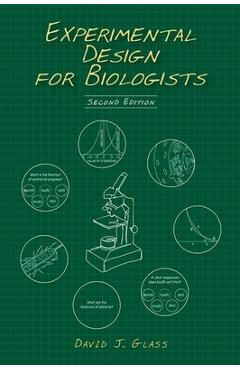Experimental Design for Biologists, Second Edition - David J. Glass

Detalii Experimental Design for Biologists, Second
libris.ro
397.57 Lei
441.75 Lei
Science
David J. Glass
Experimental Design for Biologists, Second - Disponibil la libris.ro
Pe YEO găsești Experimental Design for Biologists, Second de la David J. Glass, în categoria Science.
Indiferent de nevoile tale, Experimental Design for Biologists, Second Edition - David J. Glass din categoria Science îți poate aduce un echilibru perfect între calitate și preț, cu avantaje practice și moderne.
Preț: 397.57 Lei
Caracteristicile produsului Experimental Design for Biologists, Second
Comandă Experimental Design for Biologists, Second Online, Simplu și Rapid
Prin intermediul platformei YEO, poți comanda Experimental Design for Biologists, Second de la libris.ro rapid și în siguranță. Bucură-te de o experiență de cumpărături online optimizată și descoperă cele mai bune oferte actualizate constant.
Descriere magazin:
The effective design and analysis of experiments in biology are critical to success, yet graduate students in biological and medical sciences typically receive very little formal training in these steps. With feedback from readers of the first edition, colleagues, and students taking the very popular experimental design courses taught by the author, this second edition of Experimental Design for Biologists retains the engaging writing style while organizing the book around the four elements of experimental design: the framework, the system, the experiment, and the model. The approach has been tested in the classroom, where the author has taught numerous graduate students, MD/PhD students, and postdoctoral fellows. The goal of every scientist is to discover something new and with the aid of Experimental Design for Biologists , this task is made a little easier. This handbook explains how to establish the framework for an experimental project, how to set up all of the components of an experimental system, design experiments within that system, determine and use the correct set of controls, and formulate models to test the veracity and resiliency of the data. This thoroughly updated edition of Experimental Design for Biologists is an essential source of theory and practical guidance for designing a research plan. Experimental Design for Biologists is a unique and successful handbook on the theory and practice of effective design of scientific experiments, based on a well-received course by the author. This second edition is entirely reorganized, rewritten, and includes new material and figures. The material is presented in seven parts: Philosophy of Scientific Experimentation, Mapping Out the Project, System Validation, Experimental Design, Examples, What Comes After, and Putting It All Together. Experimental Design for Biologists, Second Edition, is an essential source in designing a sound research plan, critical to the success of graduate students--

Produse asemănătoare

Experimental Evaluation Design for Program Improvement, Paperback/Laura R. Peck
![]() elefant.ro
elefant.ro
Actualizat in 02/07/2025
263.99 Lei

Experimental Design and Data Analysis for Biologists. 2 Revised edition, Paperback/***
![]() elefant.ro
elefant.ro
Actualizat in 02/07/2025
460.99 Lei

Goal-Oriented Optimal Experimental Design for Reactive Chemical Systems, Paperback/Dr Olga, Ph.D. Walz
![]() elefant.ro
elefant.ro
Actualizat in 02/07/2025
506.99 Lei

Design of Experiments for Engineers and Scientists. 3 ed, Paperback/***
![]() elefant.ro
elefant.ro
Actualizat in 02/07/2025
472.99 Lei
Produse marca David J. Glass

Experimental Design for Biologists, Second Edition - David J. Glass
![]() libris.ro
libris.ro
Actualizat in 05/06/2025
397.57 Lei

Growing the Golden State: 1847-1900: The Adventures, Experiences and Contributions of Two Pioneer Families, Hardcover/Ed D. David J. Glass
![]() elefant.ro
elefant.ro
Actualizat in 26/10/2020
147.99 Lei

